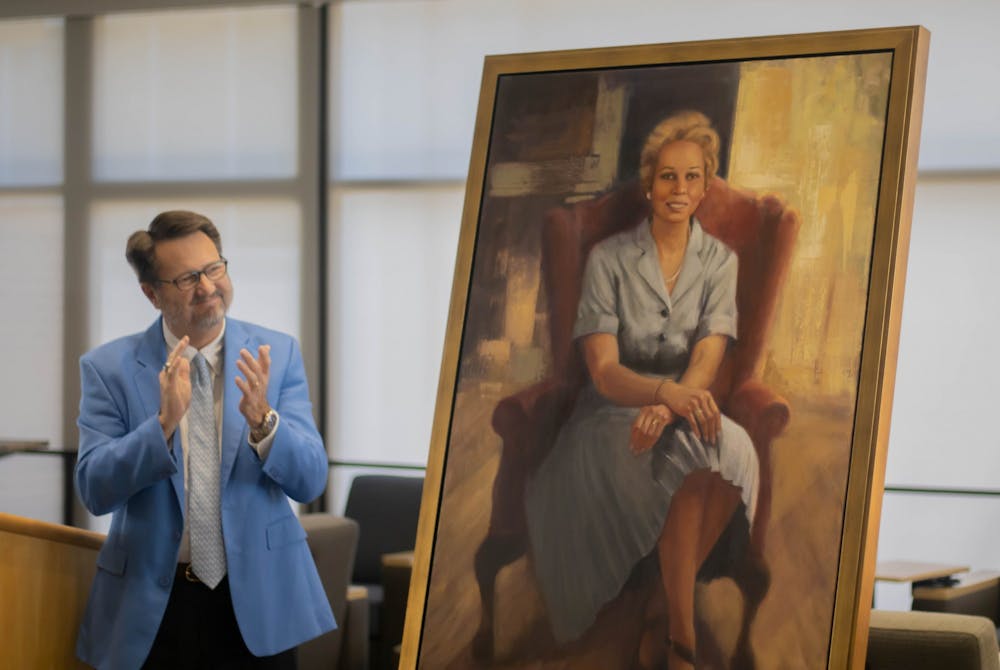Sylvia X. Allen was the first Black woman to graduate from the UNC School of Law, a prosecutor, an assistant attorney general, a community leader and a mother of eight children.
UNC faculty and students gathered on Friday to witness the unveiling of Allen’s portrait, which will hang in the law school beside images of other distinguished alumni. The UNC School of Law commissioned the portrait by artist Robin Wellner after alumni Diana Florence '95 and M. Scott Peeler ‘97 established the Sylvia X. Allen Scholarship Endowment Fund in 2021.
“Many times, as a student, you’re going to read about scholarships or read about alumni, and they’re just names. They just sound like random people from the past,” Florence said. “My hope — and I think Scott’s hope — is that when people hear Sylvia’s story, and they see her portrait, they’ll know that not only was she something of an icon, but she was a real person who was loved and gave so much love and inspiration to everyone around her.”
At the ceremony, Allen’s friends and family gave speeches honoring her life and accomplishments. Daughters Elizabeth Allen and S. Kathryn Allen, who both became attorneys, spoke about their mother's impact on them and their community.
“It’s always stayed with me that no matter what was going on in her life, she didn’t miss what was right there, miss somebody that was in need.” Kathryn Allen said after the ceremony. “On holidays, there were always a gazillion people in our house, because everyone who was by themselves or didn’t have a family was invited to our house. That’s just who she was.”
Members of Allen’s family, especially Elizabeth and Kathryn, said they worked closely with Wellner to create a portrait that conveyed their mother's life and spirit.
“We told a lot of stories to give Robin a sense of (Sylvia’s) personality, so that she could try to put that life and that spirit in the portrait, which I think she captured beautifully,” Elizabeth Allen said. “It’s not one of those portraits where the person just seems like they’re two-dimensional, like they’re sitting there. It has this sense of her life, and who she was.”
Wellner honors leaders, activists, artists and victims of police violence in her Art for Justice series. To create this portrait, Elizabeth and Kathryn Allen provided Wellner with photographs and archival videos that conveyed the attorney’s personality.
“It was such a delight, and it was so fun.” Wellner said. “I’d send pictures, and they’d respond, and we’d make the adjustments to it. It was wonderful.”



